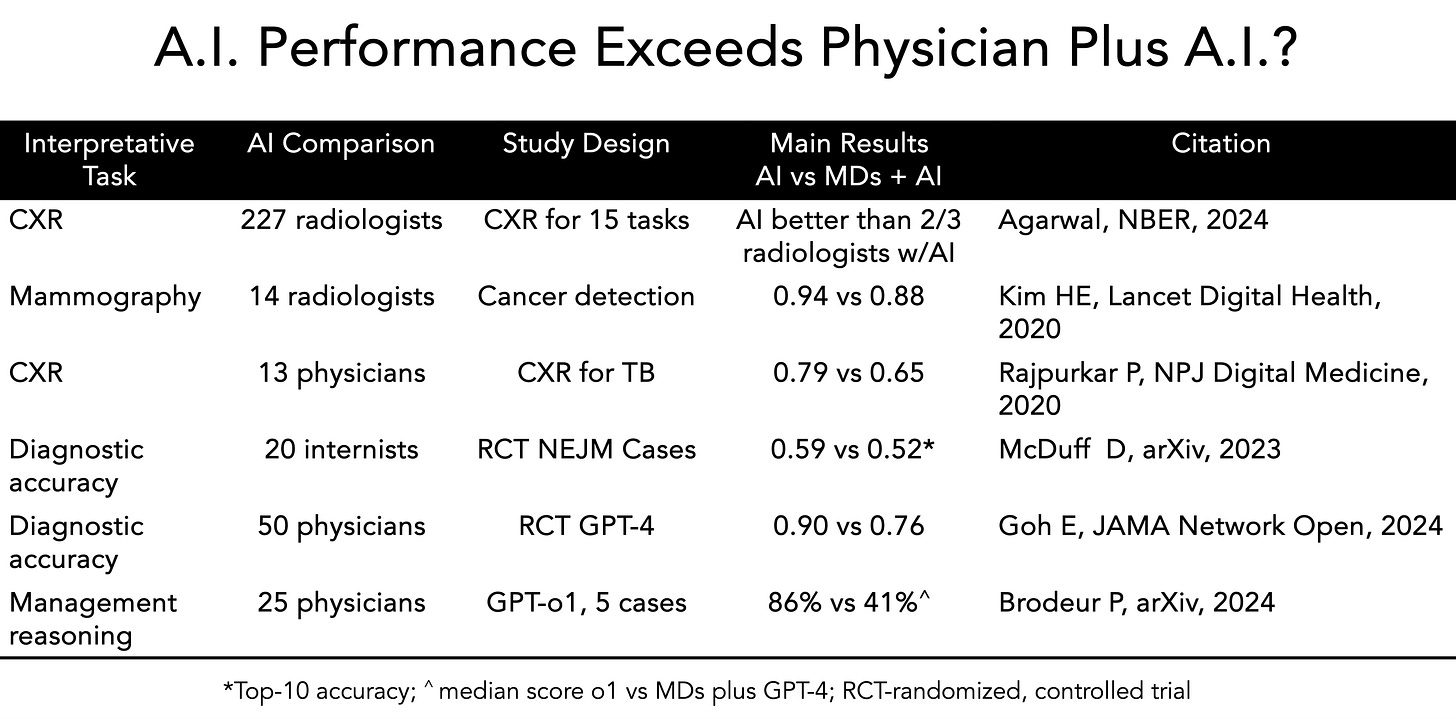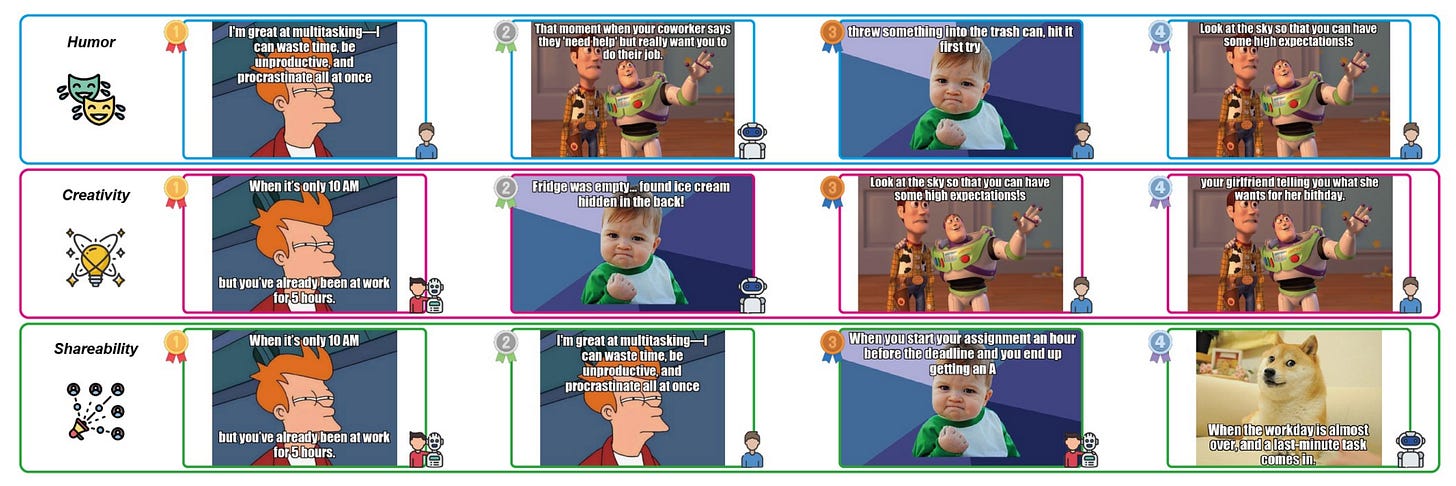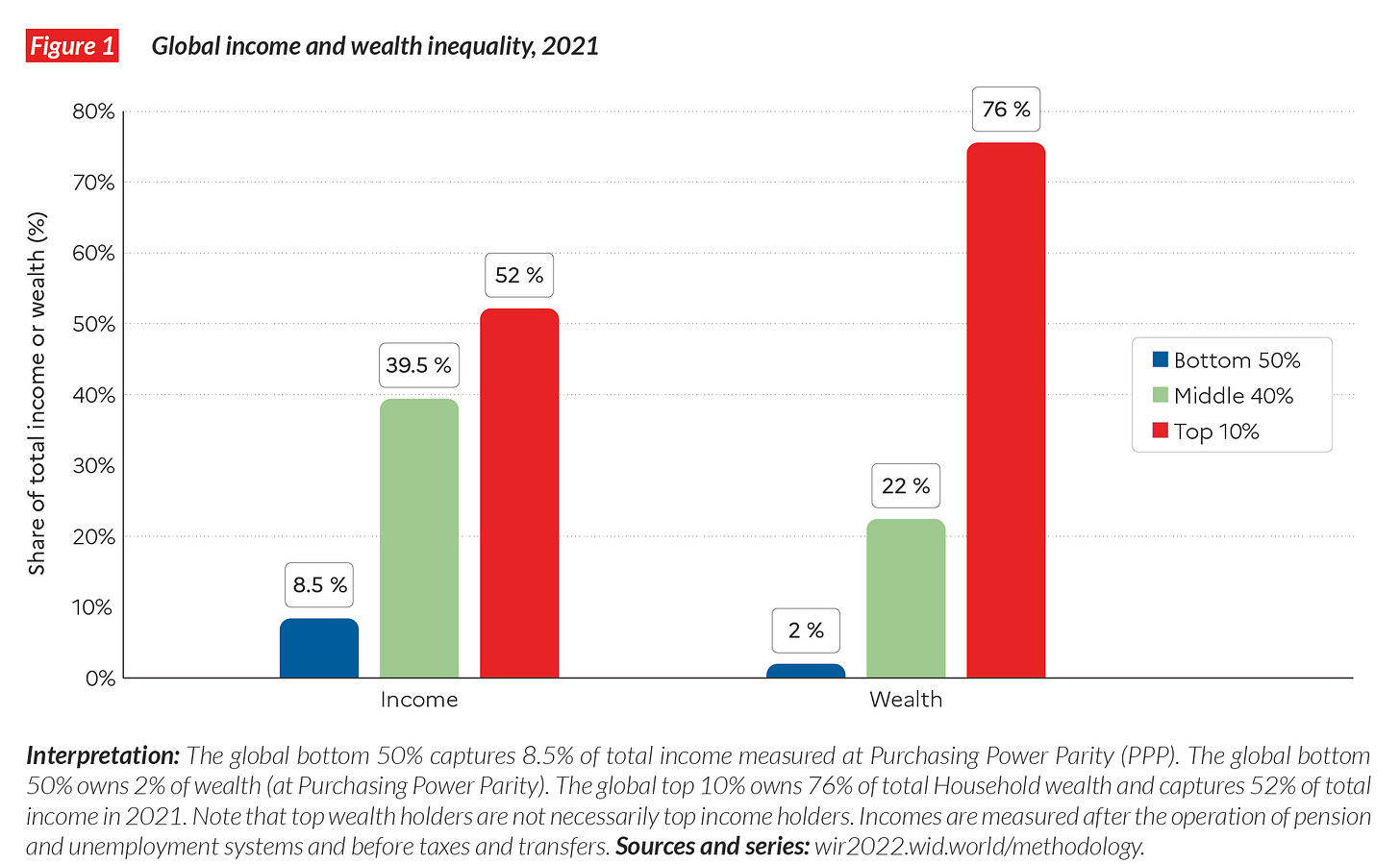The Great Human Displacement – How AI is Outperforming Humans and Redefining Our Value
AI is rapidly overtaking supposedly uniquely human abilities. Explore how this transition challenges human identity, intelligence, and our future relevance
Hello and Welcome back to Tech Trendsetters! This is the go-to platform where we break down the latest in science, technology, and business – making sense of all the innovations shaping our world! And today’s episode is once again a glimpse into the future, but for some, it might already be a reality – it all depends on where you look.
In 6 months, AI will write 90% of programming code. In 12 months, 100%. That's not my prediction – it's the business forecast from the CEO of Claude, one of the most powerful neural networks on the planet. For those currently investing their time and money in programming courses: my condolences. You're probably training for obsolescence.
In my last episode, I warned that humanity faces a paradox where our tools are advancing rapidly while making us intellectually passive. I showed how people are outsourcing cognition to machines, becoming mere "AI output validators" instead of “thinkers”:
But that was just the beginning. The situation is worse than I thought. Today, I'm going deeper into what happens when machines don't just make us dumber – they actually become smarter than us.
The evidence is overwhelming. In medicine, research now clearly shows that AI without a doctor outperforms a human doctor working alongside AI. Let that sink in. Not only can AI diagnose better than physicians, but human "assistance" actually makes the AI perform worse. In creative domains, GPT-4o or GPT-4.5 now generates jokes and memes judged funnier and more original than what average humans produce. The machines aren't just calculating – they're creating, diagnosing, and yes, even being funnier than we are.
What we're witnessing is nothing less than a great bifurcation in human value. Super-professionals and geniuses on one side, everyone else on the other.
Those exceptional few still outperform machines in their domains. The rest of us? We're already losing. This isn't just another economic disruption – it's an evolutionary challenge to our relevance as a species.
So, in this episode, I'll first lay out the evidence of AI's accelerating capabilities across domains, that we foolishly thought would remain "uniquely human."
Then we will explore how we might navigate this new landscape where human intelligence is no longer supreme. The comfortable narratives we tell ourselves about this transition are mostly wrong. It's time for some uncomfortable truths.
No Domain is Safe from AI
Once again, my take is pretty much simple – the assault on human exceptionalism is happening faster than most people realize. We're not just losing specialized technical capabilities – we're losing at being human.
The economics driving this transformation are ruthless. At the Council on Foreign Relations, Dario Amodei (CEO of Anthropic) revealed that the cost of AI development is decreasing by 4x annually, while investments are growing 10x. Four times cheaper every year, with ten times more money being poured in.
Although we're still in the early stages of AI development, it's clear where this economic trend is leading. Below, I'll provide a few examples.
AI is taking over Scientific Research
Scientific research seemed safe from automation just a few years ago. No more. SakanaAI recently unveiled that their "AI Scientist" system produced a paper that passed peer review at a workshop held by ICLR (!!) – one of the premier conferences in machine learning.
The team selected only three AI-generated papers to submit (by agreement with the organizers, to avoid overwhelming reviewers), and one of these papers received ratings of 6, 7, 6 (6: slightly above the acceptance threshold, 7: a good article, accepted for the workshop). The other two papers scored 3,7,3 and 3,3,3. With such ratings, the accepted paper outperformed about 45% of all submitted works. Think about that. Nearly half of human researchers – people with advanced degrees who've dedicated their lives to this field – produced work judged inferior to what a machine created.
What's truly alarming is how the process worked:
The AI formulated scientific hypotheses on its own;
It designed experiments to test those hypotheses;
It wrote and refined code to conduct those experiments;
It ran the experiments, analyzed data, and created visualizations;
It composed the entire manuscript without human intervention;
Humans merely provided general research directions and selected which papers to submit. That's it. The actual scientific work – the thinking, testing, analyzing, and communicating – was entirely handled by the machine.
Remember when I said that "users are becoming intellectual middlemen" (in our previous episode)? Now we're not even needed for that. The AI Scientist shows that machines can handle the entire intellectual process from start to finish. They don't need us to validate their outputs anymore – they're producing peer-reviewed science on their own.
AI is taking over Lawyering
The legal profession isn't faring any better. Another study published this year reveals just how drastically AI is transforming one of humanity's oldest intellectual professions. Researchers conducted the first randomized controlled trial of advanced AI legal tools - specifically testing Vincent AI (which uses Retrieval Augmented Generation to ground responses in actual legal sources) and OpenAI's o1-preview (a general "reasoning model" designed to think step-by-step through complex problems).
Both AI systems significantly enhanced the quality of legal work across four of six tested assignments. Law students using these AI tools produced substantially better quality work, with statistically significant improvements in clarity, organization, and professionalism. Moreover, o1-preview achieved this improvement without requiring any additional legal training – a remarkable advance in areas previously assumed to be the "uniquely human".
And that's not all. The part I found the most interesting is the productivity gains. Vincent AI boosted productivity by 38% to 115% across different legal tasks. O1-preview increased productivity by 34% to 140%.
Impressive. But let me be clear about what this means: AI systems don't just make lawyers more efficient – they actually make them better lawyers. The machines are enhancing the very intellectual qualities we thought defined skilled legal work. And we're just at the beginning of this curve.
AI is taking over Memes
Yes, memes. You heard that right – our sacred corner of the internet – where humor is defined by human cognition, may be seeing its final days.
A recent study with the exceptionally funny title "One Does Not Simply Meme Alone" has delivered a harsh truth: AI is funnier than you. Yes. Just accept that.
The researchers conducted a rigorous experiment with three groups of 50 participants each – humans creating memes alone, humans working with an AI assistant, and AI creating memes autonomously. Guess the results! Memes generated entirely by AI outperformed both human-only and human-AI collaborative efforts across all measured dimensions – humor, creativity, and shareability.
Let that digest a little. The machines aren't just outperforming us in clinical diagnostics or legal analysis – they're beating us at being funny (to be completely honest – I didn’t expect that coming).
These systems have ingested vast datasets of human humor, allowing them to distill what resonates with the broadest audience. They're creating content that appeals to average taste better than the average human can. It's algorithmic populism at its finest.
Still, when analyzing the top-performing memes, humans still created the funniest ones! You might think, That’s still a win! And yes, it is – but with a nuance.
The most exceptional human creators still brought something AI couldn’t replicate – an ineffable spark that makes something truly hilarious. But the key phrase here is “the most exceptional human creators”.
Which brings us to the next part.
Elite Humans vs. Everyone Else
What's emerging is a division of humanity into two classes: super-professionals who still outperform AI in their domains, and everyone else who doesn't. I don't see a middle ground forming.
For decades, we've preached a gospel of education and upskilling as paths to economic security. Learn to code! Master digital skills! But what happens when the skills we're teaching become obsolete before students graduate? What happens when the bar for "skilled" work continuously rises beyond what most humans can achieve?
The uncomfortable reality is that people of average ability – which, by definition, includes most of us – are already losing to AI in nearly everything:
In creative writing;
In medical diagnosis;
In coding;
In humor and entertainment;
In scientific research;
And believe me, this is not my biased far-off projection. It's happening right now, and accelerating monthly. The psychological impact shouldn't be underestimated. Humans derive meaning and identity from their work and creative expression. As these domains become colonized by AI, we face not just economic disruption but an existential crisis of purpose.
This goes far beyond the "critical thinking crisis" we’ve discussed in our last episode. Then, I warned that people were choosing “not to think”. Now, I'm telling you that even if they wanted to think, most can't compete with what AI produces. The machines aren't just making us lazy – they're making us obsolete.
Historically, the top 1% have accumulated nearly all global wealth, creating deep economic divides. Now, this process is accelerating dramatically with AI, concentrating power even further into fewer hands.
I'm not worried about the geniuses. The truly exceptional humans – the top 1% in any field – will likely maintain their edge for some time. I'm worried about everyone else. What happens to a society as whole, when 90% of its members can't economically compete with machines? What happens to human dignity when most of what we previously valued ourselves for is done better by iphone in your pocket?
Challenging the Idea of Human Exceptionalism
Okay, so recently, as I've been diving deeper and getting excited about AI-intelligence, and everything we've discussed today, I found myself exploring scientific papers that approach these issues from an evolutionary biology perspective.
I stumbled across one particularly intriguing paper – recently published in Science Advances – that completely flipped my perspective on human intelligence. This paper critically reassesses something called the "hard-steps model," a long-standing scientific idea claiming that intelligent life (like we, humans) is incredibly rare and improbable, arising only through a sequence of extremely unlikely evolutionary events – so-called “hard steps”.
Now, why does this matter for our conversation about AI?
Well, the hard-steps model implies that we humans are uniquely special – like winners of a cosmic lottery. According to this model, humanity's cognitive and technological leaps weren't just impressive; they were borderline miraculous.
So this recent research – challenges that idea entirely. It argues that human evolution wasn't improbable at all. It simply happened because certain key environmental thresholds were crossed at specific points in Earth's history. Evolutionary biologists now suggest that the apparent uniqueness of human intelligence isn't because it was inherently unlikely to evolve, but because once it evolved, it effectively "occupied" the niche, preventing other similar intelligences from arising or thriving.
Even more strikingly, recent findings from anthropology and biology show that almost every trait we consider "uniquely human" – complex language, tool use, social problem-solving – actually appears in various forms across the animal world. Intelligence itself seems to exist on a continuum rather than as a binary trait exclusive to humans.
This revelation shook me because it aligns perfectly with our current situation with AI. We're anxious about AI overtaking uniquely "human" domains like creativity, humor, and scientific reasoning, precisely because we assume these qualities make us exceptional and irreplaceable.
But what if that assumption is flawed?
If our intelligence and cognitive skills are not singular miracles but natural evolutionary outcomes – common enough that even other species show traces of them – then perhaps AI surpassing us is not an anomaly or catastrophe. Instead, it might be the next logical step in a much broader evolutionary continuum.
So what does this mean practically?
It means our value as humans doesn't lie in desperately holding onto outdated notions of exceptionalism or uniqueness. Instead, we need to pivot, to adapt, and embrace what truly makes us valuable in ways machines can't replicate easily:
empathy;
adaptability;
moral;
ethical reasoning,
meaningful human relationships;
and perhaps, ironically, even our capacity for humility.
Maybe our challenge today isn't about preserving what we once thought made us unique. Maybe it's about redefining our place in a broader spectrum of intelligence and creativity – one that now includes AI.
AI is definitely going to lead us through changes – that is a no-brainer. We're talking about a complete redefinition of our economy, labor, education, creativity, and so much more.
The real question isn't whether “the change” is coming – it's how we'll respond to it. Are we even ready to adapt? And perhaps more importantly, are we ready to redefine our own place within this new upcoming world?
Until you find your own answers, I thank you for joining me in exploring these questions today. Until next time – stay thoughtful, stay adaptable, stay top 1% and I'll see you next time!
🔎 Explore more:
The AI Scientist Generates its First Peer-Reviewed Scientific Publication
The Future of U.S. AI Leadership with CEO of Anthropic Dario Amodei
A reassessment of the “hard-steps” model for the evolution of intelligent life
Bonus content (meme suggested by Gemini Flash model):










